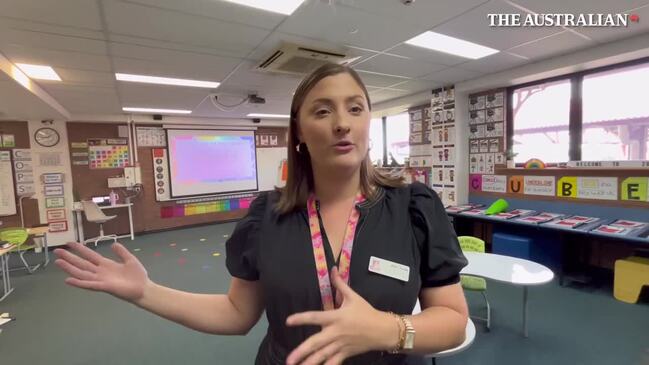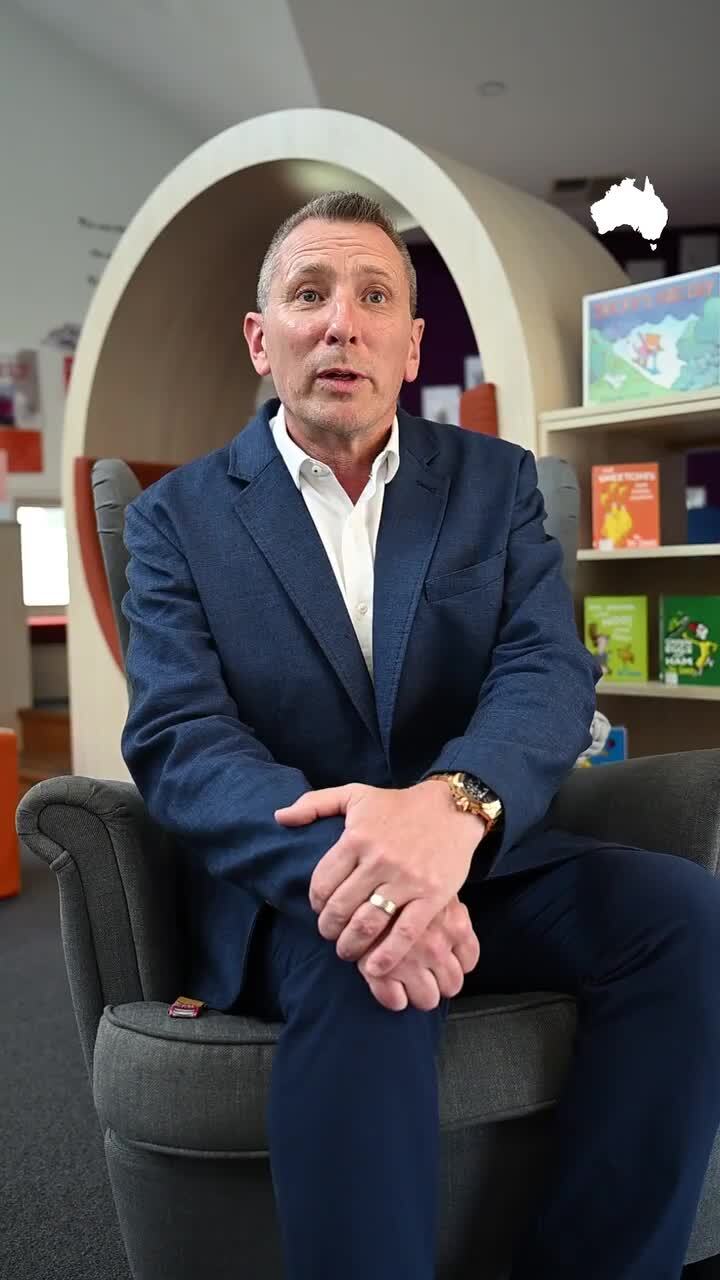A revolution is now underway in our classrooms

The data couldn’t be clearer: regardless of socio-economic context, high-performing schools are nearly exclusively those that privilege evidence-based teaching and learning, including explicit instruction and a knowledge-rich curriculum.
Take the achievement of the first program of its kind to lead the change to explicit instruction across a whole system: the Catalyst program. In 2019, the Catholic Archdiocese of Canberra Goulburn, under the leadership of Ross Fox, introduced an Australian-first program to support its teachers to implement explicit instruction and evidence-based reading in every classroom in every school. Catalyst was implemented in 56 schools across NSW and the ACT and has involved significant investment in professional learning of teachers and leaders over five years.
It’s a natural experiment because the government system did not change its practice and the Catholic and state system in the ACT have very similar demographics. The performance of the Catholic schools in the ACT can be compared with those of the ACT government, which made no practice change at the time.

After five years of committed change, the results are in. So, what happened? The data released by ACARA this week shows 13 out of the top 20 performing schools in the ACT are Catholic schools. Given that the Catholic system accounts for 20 per cent of ACT schools, having 65 per cent of the top performing schools represents a clear demonstration that the Catalyst program has delivered results.
Catalyst has been high profile enough to be copied and emulated. The resources developed for it are available publicly and have been shared widely. It is a rolling revolution, now bearing fruits in better learning outcomes.
Noel Pearson, long-time advocate for evidence-based reading instruction and explicit teaching, said it was the “best thing that has happened in Australian education in 20 years”.
Several other similar evidence-based programs are emerging nationwide. Knowledge Society and Classroom Mastery is involved in the design and/or delivery of all other programs for the Catholic Archdiocese of Melbourne with 26 schools in their Western region, 51 schools in the Sandhurst Catholic Diocese, and a further 125 schools have completed a similar school improvement agenda in the Fogarty EDvance program in Western Australia.
There are approximately 300 schools teaching this way, out of 9500 schools in the country. Education systems across Australia have stated their intention to move to this model of instruction and undertaking the curriculum reform, particularly in reading, English and mathematics.
These programs should not involve new money but should replace existing, low-impact professional learning being provided to teachers. But they need to get the implementation right. There are lessons from the design, implementation and delivery of Catalyst that need to be learnt and applied.
First, we need comprehensive, well-designed programs, driven from the top and with due attention paid to implementation. Second, success requires that ineffective practices are removed, and finally change initiatives should be measured by their performance in terms of student learning outcomes.

Catholic Education Canberra Goulburn commissioned Knowledge Society to design a change program based on global and national examples of successful practice change initiatives, both nationally and internationally, in education and medicine. Decisions need to be made on the right dosage, intensity and frequency of professional learning and other supports to achieve change in the classroom.
Outstanding teacher educators are required. Catalyst benefited from the capabilities of Pamela Snow, Lorraine Hammond, Michael Roberts and Toni Hatten-Roberts and Ingrid Sealey. The quality of implementation matters. Schools and classrooms have been running in one direction and now we want them to run in another.
Supporting this change starts with having some very real sympathy for the teachers we are asking to change. Remember, they dutifully studied to gain their university qualification and prepare to teach the nation’s students, and now we are telling them that they didn’t learn what they needed to do the best possible job.
They now need to learn that there is a cognitive science that all teachers need to know so that you can create the classroom conditions for real learning and use effective teaching strategies that keep students engaged and don’t overload their working memories.
Good implementation also requires the recognition that every school will be at a different place on the change journey. Some schools have almost no evidence-based practice. Some have a smattering in a few classrooms, others have taken huge strides and just need some top-ups and the encouragement to achieve exemplary practice. Systems designing practice change programs need to be adaptive to this range of starting points.
Schools need assistance to stop using non-evidence-based practices. The NSW Education Department was the first to de-implement Reading Recovery, for example, after a 2018 evaluation found it was not efficacious. But many schools around the country are still using it.

Finally, all initiatives in education should be tested against their effects on student learning outcomes over a realistic time period. To end the cycle of fanciful fads and non-evidence-based activities, major programs and initiatives should have a solid evidence base and track record. Too many things are being proposed and launched in schools including to achieve laudable goals like student wellbeing, when these programs have no evidence base.
The good news is there is a sequence to school improvement. Any school, in any postcode will benefit from putting all the evidence-based pieces in place. You need realistic timelines, good management and planning and comprehensive professional learning for your teacher, but it can be done in any postcode.
We’ve broken the drought now. Catalyst has demonstrated that dramatic improvements in learning outcomes are possible at scale. We now need to see each state and system think hard about how they will support their schools to make the curriculum, pedagogy and assessment changes they need to give every child in every postcode the best possible education.
What’s at stake is not just the productivity of our education system, but the wellbeing and life outcomes of our citizens.
Elena Douglas is chief executive of Knowledge Society which designed the Catalyst program and delivers Classroom Mastery and Fogarty EDvance in Australian schools.







The latest round of NAPLAN results released by the Australian Curriculum and Assessment Reporting Authority confirm that schools, in any postcode, that improve their curriculum and lessons, implement explicit teaching and an evidence-based approach to reading instruction can surge ahead in learning outcomes.